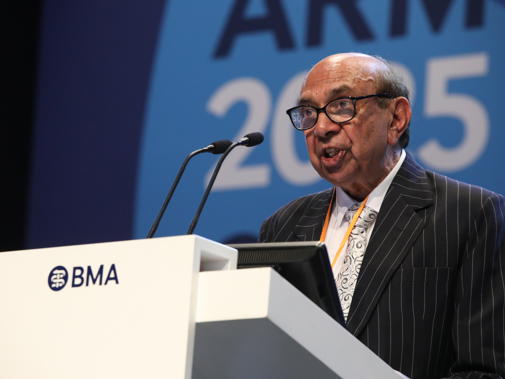GP practices will continue to face collapse unless the Government takes steps to exempt them from National Insurance rises, doctors at the annual representative meeting have heard.
The decision to not spare general practice from increases in employers’ NI contributions is sounding the death knell for practices struggling with years of underinvestment and rising patient demand, the ARM in Liverpool heard.
Following the Autumn Statement last October, the rate of employer contributions rose 1.2 percentage points to 15 per cent.
This increase, which was implemented alongside a 6.7 per cent increase in the national living wage, has imposed an increasingly onerous financial burden on under-pressure practices.
Addressing the conference, Cardiff GP Om Aggarwal warned GP practices around the UK were being forced to return their contracts simply due to the current financial model pushing them to the brink by the NIC rises.
He added that many parts of the NHS having been exempted from the increases, general practice had been left to ‘shoulder the burden’.
General practice in crisis
He said: ‘General practice is in crisis. We face mounting pressures from every direction, excessive workload, difficulties in recruitment and retention and a growing demand that far exceeds our capacity.
‘Now we have been hit with another blow, increases in employers’ National Insurance contributions imposed on us without any additional funding.
‘These cost pressures come at a time when we are already struggling to recruit and retain GPs, nurses and administrative staff, and yet we have been financially penalised for employing them.’
Following the announcement of last year’s Autumn Statement, BMA council issued a statement expressing its astonishment that general practice had been apparently singled out for the contribution increases, describing them as an ‘existential threat’ to the UK’s primary care services.
Dr Aggarwal said: ‘We are repeatedly told that general practice is an essential part of the NHS. Yet when it comes to funding and cost pressures, we are treated differently.
‘Many hospital trusts and NHS organisations have been exempted from these increases in NIC, yet general practice has been left to shoulder the full burden. We cannot absorb these rising costs without consequences.
‘If this continues, we will see more practices collapse, more partners walk away, and more patients lose access to care due to policy failure.’
Conference attendees voted overwhelmingly to endorse calls for the association to lobby the Government for an immediate exemption on NIC increases for general practice, and for appropriate reimbursement to be provided to practices affected.

